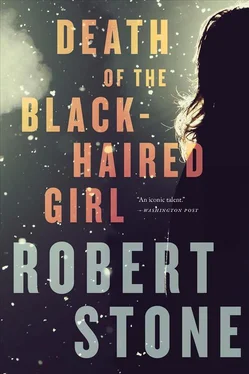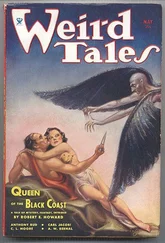STEVEN BROOKMAN HAD a particularly comfortable office in the oldest college building, Cortland Hall. There was a Persian carpet on the floor. The captain’s chairs, like the leaded bay windows, were inscribed with the institution’s motto: Lux in umbras procedet. The phrase referred to the college’s ancient determination to confront Algonquians with the prospect of eternal fire.
On Brookman’s desk were piled the student assignments due to be graded and returned the following day. He had been awake all of the previous night evading any responsibility to them. Now they were neatly stacked against him on his green college blotter and there seemed nothing for it but to read them. He felt, on that particular morning, that he would rather die.
It was true that most of the papers were fairly boring, but that was not Brookman’s problem. The real trouble was that they could be quite ingenious, experimental in style, original or contrarian in reasoning. These were kids whose high school teachers carried them to the airport on their shoulders — the preppie stars, the advanced-placement-class brains and scholar athletes, the alpha girls, the youths of destiny to be raised up or broken by time’s wheel. Some schools were said to instruct their students on the techniques for ruling the world. A revered visionary of the nineteenth century had said Brookman’s college thought of itself as examining the moral authority of privilege, which was far more high-minded, and exactly the same thing.
He had been hearing Andean flutes outside since dawn, thin wintry sounds just the near side of tonality. The music had become a daily presence around the college. When he picked a paper from the top, whose should it be but young Maud Stack’s. It had not been on the pile the day before, from which he had to conclude that she had let herself into the building and his office, to which he had rashly given her a key the year before. Maybe, he thought, he could have the office lock changed, discreetly, at his own expense. An odd guilty thought, of uncharacteristic foreboding.
Maud’s paper was too long as usual and also a week late. Maud’s assignments were always late. She turned in less than half of the minimum due, invariably borne on one of her fits of manic energy and insight. The results could be truly dazzling. Even on days when he was not particularly in the mood for Maud, he would take up one of her essays with a stirring of anticipation not untouched by dread. Dread of her winning her way inside him again, of threatening to crowd out the contoured life he had made himself, the devotions and sacred loyalties within it.
The student papers that day concerned Marlowe’s Doctor Faustus. Maud had no line on it; the bookish kids never did. It was low showbiz, they thought; it was vulgar and corny.
The passage that had caught her attention was the one in which the Doctor asks Mephistopheles how he manages to wander about tempting obsessed intellectuals while doing time in hell.
“Why this is hell,” says the Diabolus, “nor am I out of it.”
“Shakespeare,” Maud had written, “would never be so impious.”
Next to her line, Brookman wrote: “True.”
This is the line that gets to her, an odd precocious insight for a spoiled college girl. In discussion, he will tell her this, if not in so many words.
Maud was seriously, determinedly in love with him. Too young to know better, he would have joked, had it been a joking matter. Which it was not, because that was the situation. She actually was too young to know better.
Maud was a passionate person; Brookman also. He was not immune to obsession, which was really the basis of his success as a travel and adventure writer. He had been crazy about Maud for a year, not only because she was beautiful and sexually inspired but because of her youth, her moments of sheer brilliance, the unquiet being behind her eyes.
Not that the flame burned less brightly now but that the kindling furnished a different smoke. As far as Maud went, he would have to digest the venom of loss. There was only one love the loss of which he could not contemplate, and it was not Maud’s. A few days before, Brookman’s wife of eleven years had, with confidence and joy, confirmed to him that she was pregnant. She was on leave for the semester and had been in Saskatchewan on her family’s farm since Canadian Thanksgiving, their ten-year-old daughter along, leaving Brookman to his ways. He loved her very much and was filled with guilt and superstitious dread about their safety. He had resolved to break off the thing with Maud. Whatever it took.
Brookman walked from his desk to the Tudor windows that opened to the quad. He brushed open the gray and black curtains, which displayed the same salvific motto of missionary days, about darkness and light and converting the Indians. His desk was genuinely old, a rolltop bequeathed to the college by Charles Sanders Peirce or some other Brahmin savant of the nineteenth century.
Outside in the quad he saw a middle-aged man walking deliberately in the direction of the street gate, one of the lost souls who wandered the campus yards and passages at every hour. The security staff knew all the regulars and, even in the aftermath of the World Trade Center events scarcely three years before, let them have free range of the place. Art students who could make them sit still liked to pose such people. They had faces undergraduates would recall all their lives, not remembering who they were, where or when seen. Maybe, Brookman thought, Maud had one of them in mind, locating Faustus already in hell. Was it not an odd line for an adolescent to seize on — the world as hell? Not really. Father’s influence. Her father had been a New York City police detective. Her mother, dead.
The man Brookman watched was in his forties and had been around the college for a very long time. He lived in the small downtown condo his parents had bought for him. No backpacks for him; along with the plastic bags from Price Chopper and Target and 7-Eleven he carried a worn briefcase with a college sticker he had pasted on it more than twenty years before as a student. Sometimes he walked silently, eyes fixed on the pavement. At other times he carried on a dialogue with the unseen, an exchange that sounded so nuanced and literate that new students and faculty thought he was addressing them or talking into a cell phone. Occasionally he grew angry and shouted a bit, but like many of the delusional, he had learned not to confront real people who — downtown — could prove all too substantial.
Brookman stayed at the window to watch him. It was possible to picture this man sitting all night in the room his family had bought for him, and Brookman wondered if he was alone or accompanied through the small hours by the voices he heard. Whether he turned on the light or sat in the dark with them, whether they were visible to him or simply voices. What their identities were, how they treated him. Did they make him angry? Certainly he heard no good news from them.
Sometimes the man wandered into the college buildings and rode the elevators. Security never stopped him; no one bothered him. If he was in an elevator when someone got on, he would get off, even if he had just got on. If he was trapped in the elevator by a crowd, he began to act desperately sane, polishing his glasses with his handkerchief, nodding pleasantly at no one in particular, ignoring his voices. When he reached a floor he would race out, plainly agitated. Madness was hardly unknown in the college. There were others like this man, forever groping through the maze of alma mater.
Still at the window, Brookman watched the quad. The only color was of the autumn-yellowed grass on the lawns; the sky matched the sidewalks and the Norman tower of New Chapel. There was faint snow, salting a drizzle. It was slightly cheering because the month had been gray and wet, more chill than truly cold.
Читать дальше












